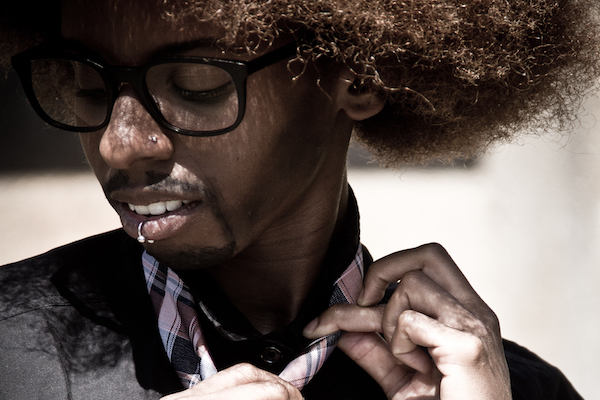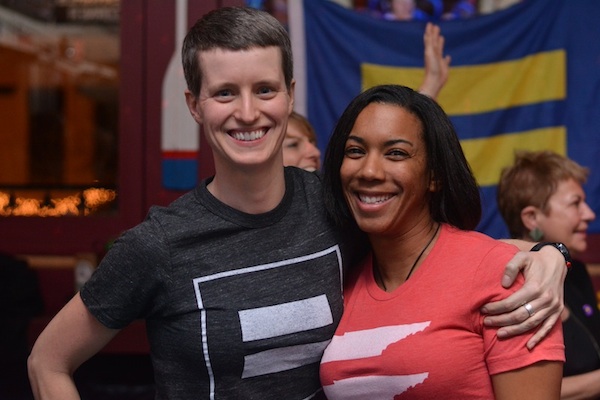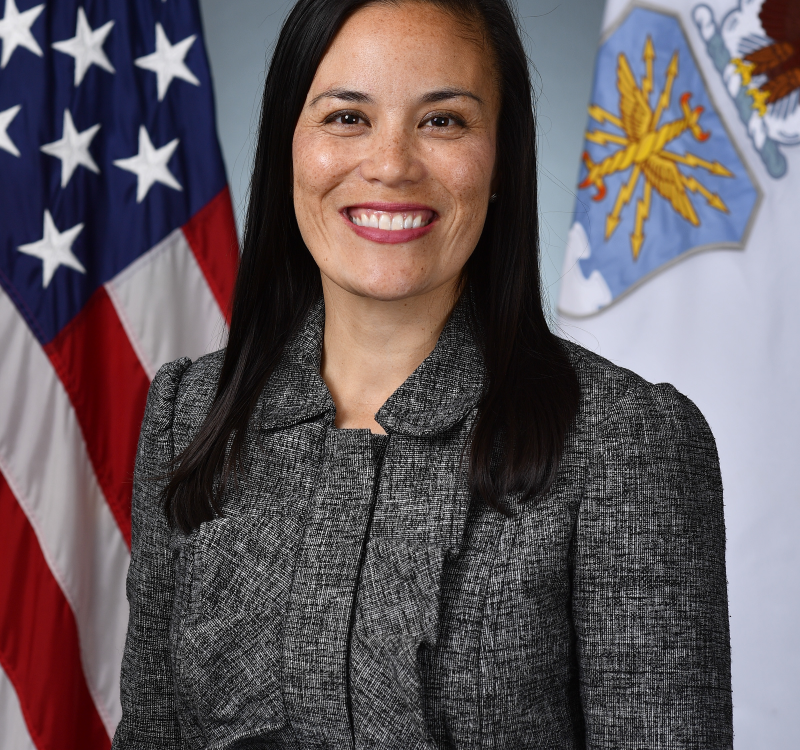
Drag Yourself to Lunch
January 18, 2016
Photos: HRC’s Lez Sing Karaoke
January 20, 2016Is being a queer woman good for your health?
When working at Mautner Project: The National Lesbian Health Organization, I heard a fair number of smart aleck jokes about why lesbians need a health organization: Allergic reactions to flannel shirts? Heel inflammation from those Birkenstocks? (You get the picture).
The reality is there are important health issues for women who identify as lesbian, bisexual or queer.
Most of these issues are created by the stigma and discrimination we experience. This stigma contributes to ill health and prevents lesbians from getting the health screenings and health care we need.
Let’s start with mental health: Depression and anxiety are reported at higher rates among lesbians and bisexuals than among heterosexual women. It is possible that depression and anxiety rates differences may not be as large as reported, since queer women are more likely to seek psychological care than their heterosexual counterparts. And that’s the good news: if you’re feeling depressed or anxious, do seek counseling!
Why the depression and anxiety? It’s an illness we catch from our families and our society: Researchers describe a syndrome of “minority stress” that’s experienced by members of any group who experience a cumulative, chronic, and additive stress stemming from repeated small and large scale social discrimination and alienation.
In LGBTQ populations this theory has been supported by research demonstrating that when people perceive that they lack the support of family, friends, and coworkers, they are more likely to experience mental health difficulties. Indeed, rejection by one’s family is strongly associated with mental illness in LGBTQ individuals.
Reactions to stigma create physical problems, too: Queer women are more likely than heterosexual women to abuse alcohol and drugs. And, as a group, we are more likely to be obese or overweight than the heterosexual population. The reasons are many: our culture is more sympathetic to large body size than the normative heterosexual culture. But feeling bad about ourselves may also play a role. The fact is, we’re just not sure. But we do know that obesity is a health risk, and we know that it’s healthier to exercise more and make healthier food choices.
Another barrier to good health is violence. Queer women – especially those who look “butch,” or masculine, experience more violence from strangers than their heterosexual peers. Violence is particularly prevalent among male to female transgender people, particularly transwomen of color.
We know that lesbians also experience partner violence, but at lower reported rates than heterosexual women. Still, the real rates may be higher; embarrassment and unwillingness to deal with the authorities when reporting lesbian partner violence may well account for limited reporting.
Another effect of stigma is that queer women tend to avoid regular medical checkups and screenings. Why? Too many have experienced doctors or nurses who have a negative reaction (subtle or not-so-subtle) to the news of one’s queerness. Or, women are afraid they’re going to get that hostile reaction and have a lot of explaining to do, which is the last thing they want to deal with. Pretty much every lesbian with a stomachache has been asked if she could be pregnant. A perfectly reasonable question, but many practitioners just won’t take “no” for an answer. A transwoman friend who went to the emergency room fearing a broken ankle recently told me that although she had already explained that she had been born male, she still was interrogated about how she could be SURE she wasn’t pregnant. Right.
But because we avoid those regular checkups, we avoid getting the screenings we need: pap tests and mammograms, blood pressure, blood sugar, colonoscopies. Every woman, no matter what her sexual preference or practices, needs these tests.
Finally, lesbians are less likely than heterosexual women to have health insurance. Why? Self-employment and low-paying jobs (“pink collar” jobs) both play a role. So too does not being married to a man: the best predictor of whether a woman has health insurance is if she’s married, to a man, who’s more likely to hold a job that includes health insurance.
Are You Sexually Active?
Coming out can be good for your health
We’ve all been there; that awkward moment at the doctor’s office when the white lab coat asks, “Are you sexually active?” For some of us it’s a resounding “Yes.” For others, it’s a string of umms and uhs.
 Some might assume their provider is only concerned about heterosexual relationships. This is not the case. As women who partner with women, we may or may not also have male sexual partners at some time in our lives. When doctors ask questions about sexual activity they are mainly concerned about your risk of sexually transmitted infections and other related health issues, such as genital herpes, yeast, bacterial vaginosis, or human papillomavirus (HPV), which if left untreated can lead to certain types of cervical cancer.
Some might assume their provider is only concerned about heterosexual relationships. This is not the case. As women who partner with women, we may or may not also have male sexual partners at some time in our lives. When doctors ask questions about sexual activity they are mainly concerned about your risk of sexually transmitted infections and other related health issues, such as genital herpes, yeast, bacterial vaginosis, or human papillomavirus (HPV), which if left untreated can lead to certain types of cervical cancer.
Contrary to common misconceptions, women who have sex with women are considered sexually active and they are also at risk for STIs – transmitting STIs to each other through skin-to-skin contact, contact with moist tissues (mucosa) such as in oral sex, vaginal fluids and (a big no-no) sharing sex toys. BYOT ladies, please.
It can be uncomfortable for queer women to disclose to their physicians who their partners are and what sexual activities they engage in due to fear of discrimination or perceived stigma. Some women may have had negative experiences with doctors in the past and refuse to expose themselves to the potential discomfort or embarrassment again, either by not disclosing their orientation and behaviors or by not visiting the doctor at all. This is no good.
Coming out can be a simultaneously nerve-racking and liberating task. But one of the keys to good health and healthcare is being open, straightforward (no pun intended) and honest with your healthcare providers. Studies show that people are less likely to be out to their medical provider regarding their sexuality than in other areas of their lives. In addition, studies have shown a direct correlation between being out and experiencing lower levels of depression. Coming out can help queer women feel more self-empowered, and make them more likely to advocate for their health in other ways.
Coming out can also allow their providers to know who their support system is, and be able to use information about their out lives to make the most accurate diagnosis and treatment plans. Being out can increase LGBTQ visibility within the healthcare system.
But how does one come out and still feel safe? Here are a few tips for coming out to your doctor:
Understand that your doctor works for you: You choose them and pay them to provide you with competent and respectful care. This is your human right. If at any time you feel uncomfortable with a doctor or the service they provide, say something to fix the issue or choose a different practitioner with whom you are more comfortable.
Ask for referrals to LGBTQ-friendly practitioners or health centers in your area: Ask friends or family for recommendations or contact your local LGBTQ health organization for referrals. Mautner Project of Whitman-Walker Health can help you find health clinics and various types of providers who have experience working with the LGBTQ community and understand the issues faced by queer women.
Call first and inquire: Call up the doctor you’re considering and simply ask, “Do you consider yourself an LGBTQ-friendly practice?” or “Do you have experience working with lesbian or bisexual women?” It’s completely anonymous and if you don’t like the person’s response, no harm done, just don’t make an appointment.
Bring a friend or your partner: It is always your right to have another person present throughout any doctor’s visit. So bring your partner or close friend as moral support, to help you explain things to the doctor, or to take notes of what was recommended.
Plan what you want to ask: Knowing ahead of time what you want to get from the visit can help you feel empowered and confident. There are no stupid questions. Also, think about how you plan to most accurately answer the doctor’s questions in order to get the most complete care.
Communicate any concerns regarding confidentiality with your provider: For women under the age of 18 or those covered by a family member’s insurance policy, it may be important to be assured that any and everything you share with your doctor is kept confidential. Unless the doctor suspects child or elder abuse, risk of suicide, or direct threat of another person, they are required by law to maintain strict confidentiality.
Be clear: A clear knowledge of your sexual practices will enable a provider to best work with you in assessing possible risks or providing appropriate screenings. If your sexual behaviors differ from your orientation, make sure to tell your provider about the sexual activities you have engaged in. For example, you identify as a lesbian, but have occasionally had sexual contact with men.
Smoke Signals
Since the 1980s, the tobacco industry has targeted gays and lesbians in their marketing. “Big Tobacco” exploits our sexuality by eroticizing tobacco use in ads and attempts to gain our trust by posing as “friends” of the community. This industry spends about $14 billion a year on marketing, focusing on us by advertising in our lesbian, gay, bisexual, transgender, and queer (LGBTQ) media; sponsoring our community events; and aligning itself with the community on social issues we are passionate about, such as marriage equality.
 We all know it isn’t always easy being queer, and some may start smoking to take the edge off. According to national polls, LGBTQ women smoke up to 200 percent more than their heterosexual counterparts. Furthermore, research suggests that this may be due to the stress of social stigma or the social norms within the LGBTQ community.
We all know it isn’t always easy being queer, and some may start smoking to take the edge off. According to national polls, LGBTQ women smoke up to 200 percent more than their heterosexual counterparts. Furthermore, research suggests that this may be due to the stress of social stigma or the social norms within the LGBTQ community.
Here in D.C., quitting can be difficult, especially given the active social scene. We are always up for brunch and happy hour. And, wherever the ladies are, that’s where we want to be. For a lot of queer women, smoking can be a social lubricant, allowing us to strike up a conversation with that hot girl we’ve been eyeing all night, simply by asking, “Got a light?”
Quitting is the single most important change a smoker can make to improve the length and quality of her life.
Why should you quit? First, for your own health! Tobacco is the leading cause of preventable death and illness in the United States, resulting in an estimated 30,000 LGBTQ deaths per year. According to the Centers for Disease Control and Prevention, women who smoke increase their risk of dying from lung cancer nearly 12 times. Just 12 hours after quitting, the carbon monoxide level in your blood drops to normal. In addition, quitting can literally add years to your life (about 10–20) by reducing your risk of lung and other cancers, stroke, and cardiovascular disease.
Second, as soon as you quit, you and your loved ones can begin to breathe easier. Secondhand smoke is dangerous and can have particularly harmful effects on children and pets living with smokers. Have you ever heard of third-hand smoke? It comprises the residual nicotine and chemicals left by tobacco smoke on indoor surfaces like furniture, bedding, clothing, and toys, prolonging your family’s exposure to these toxic substances.
Also, it’s becoming more inconvenient to smoke. More clean air laws are being passed across the country, making it illegal to smoke in bars and restaurants, leaving smokers out in the cold (or in the blazing hot heat).
If these aren’t enough reasons then how about the economy? It’s getting more expensive to smoke. In the Washington, D.C., area, a pack of cigarettes can cost around $9.00. Even if a pack costs $5.00 where you live, smoking a pack per day adds up to $1,825.00 every year. That money could be better spent on bow ties and lady-dates.
Think you’re ready to quit smoking? Every smoker has their own personal reasons for quitting. Think about what is most important to you, and when you decide to quit, don’t go it alone.
6 Quick Tips for Quitting Smoking
- Get support. Tell your friends and family that you are quitting. Ask them not to smoke around you or to quit with you. Get FREE support from the D.C. Quitline (800-QUIT-NOW).
- Make a plan. Throw away anything that reminds you of smoking: ashtrays, cigarette packs, and so on. See your health-care provider, make a plan to quit, and try your best to stick to it. Check out the American Medical Association’s action plan for an example.
- Keep your mouth busy. Snack on fruits and veggies; chew sugar-free gum.
- Keep moving. Start a new exercise program, instead of smoking. It will take your mind off urges and reinforce the fact that quitting helps to improve your lung capacity and overall health.
- Remind yourself. Review your list of reasons for quitting. Put pictures of loved ones, even pets, on your list.
- Realize that you might slip. Understand that if you do have a setback, it’s OK—just keep on quitting.





